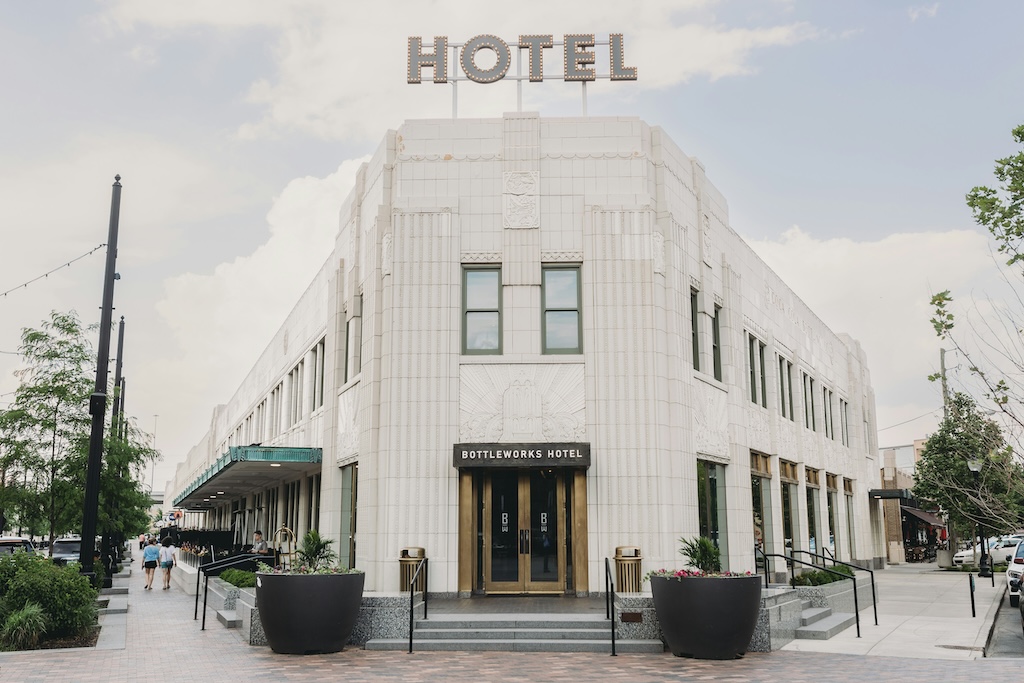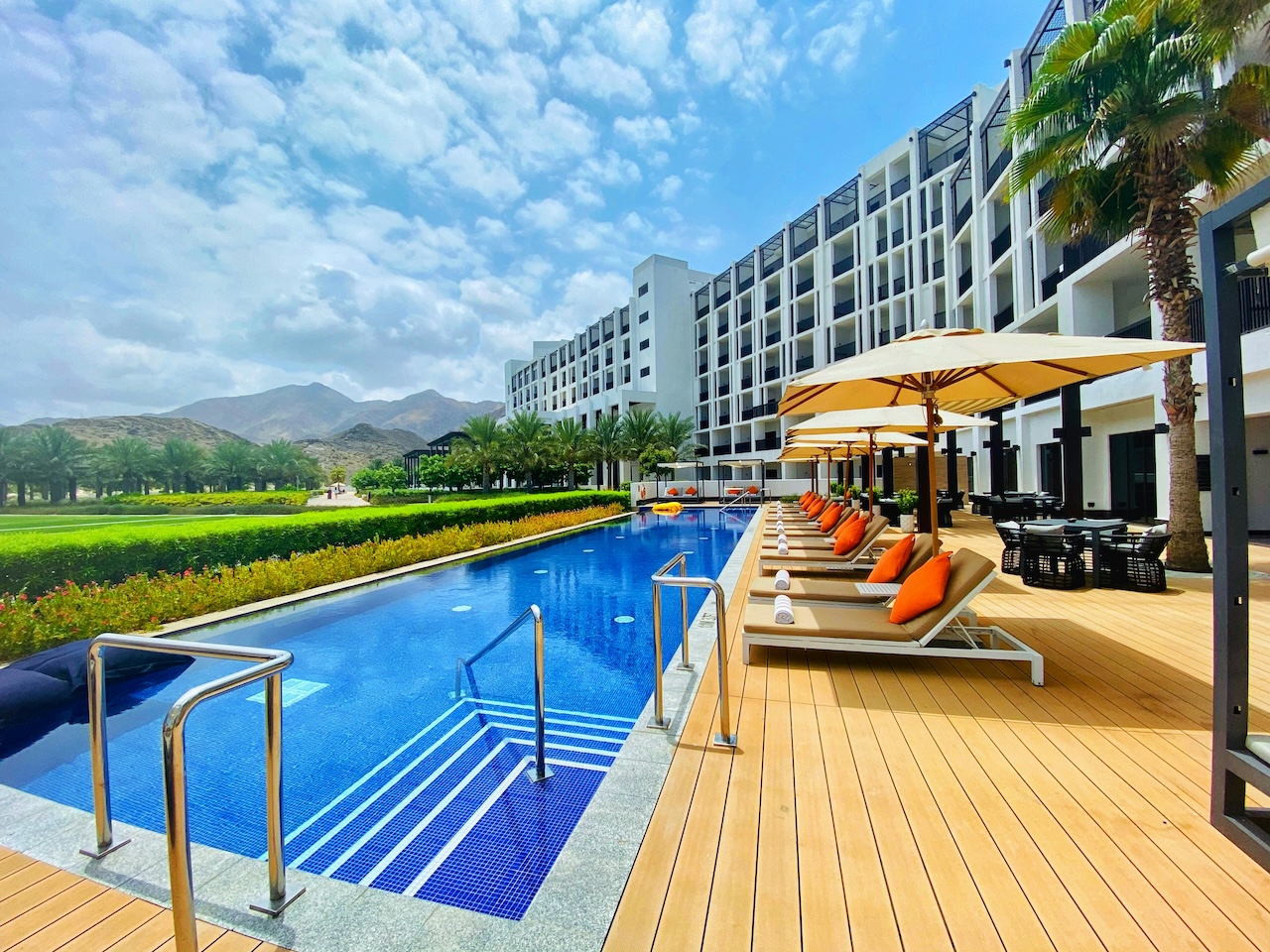

In the next chapter of Opening a Hotel, we are covering the importance of choosing the right type of hotel for your business model. Once a hotel is chosen, building a cohesive brand identity is essential in establishing a successful hospitality business. These decisions will influence everything from your property design and operations to guest experience and marketing strategy.
In this chapter, we’ll explore how to define your hotel category, whether to operate independently or under a franchise, and how to develop a unique theme or concept that captures attention and drives bookings.
The hotel category you choose sets the tone for the entire project, so it is obviously a critical decision. Your hotel category defines your service level, pricing, amenities, and target audience. From there, it will also define the budget you need for your project. If you opt for more of an economy hotel, you will have a much lower budget than if you want to open a resort.
Here are some of the most common hotel categories with some specs that are typically associated with the type of hotel:
Economy hotels are focused on affordability and basic comfort.
Target Audience: They generally target budget-conscious travelers such as solo tourists, backpackers, and short-stay business travelers.
Amenities: More often than not economy hotels offer limited amenities such as free Wi-Fi, breakfast, and clean, functional rooms.
Mid-range hotels are a happy middle-ground that provide a balance between comfort and value.
Target Audience: These hotels target families, small business travelers, and tourists who want more than basic services but not luxury.
Amenities: Common amenities include on-site dining, fitness centers, and conference rooms.
Boutique hotels are usually small, design-focused hotels offering personalized service and a unique ambiance.
Target Audience: Target travelers seeking distinctive and memorable experiences.
Amenities: Often located in trendy urban areas or converted heritage buildings with artistic decor.
Luxury hotel establishments offer premium services, lavish amenities, and exceptional guest experiences.
Target Audience: Cater to affluent travelers who expect top-tier comfort, dining, and concierge services.
Amenities: Often feature fine dining, spas, designer interiors, and exclusive experiences.
Designed for guests staying longer than a few days, including business professionals and relocating families.
Target Audience: Feature larger suites with kitchenettes, workspaces, and laundry facilities.
Amenities: Often located near corporate parks or city centers.
Positioned in vacation destinations with extensive leisure facilities.
Target Audience: Cater to holiday-makers looking for relaxation, recreation, and entertainment.
Amenities: Typically offer pools, restaurants, spas, sports, excursions, and kid-friendly activities.
Combine elements from multiple categories to serve a broader audience.
Target Audience: Examples include luxury hostels, upscale extended stays, or resorts with coworking spaces.
Amenities: Offer flexibility in services and pricing, appealing to modern, diverse travelers.
Choosing the right category ensures you meet your target market’s needs and stand out in a crowded hospitality landscape.

Another key decision for your future hotel business is whether to operate as an independent hotel or under a franchise model. Each has distinct advantages and challenges that influence branding, operations, and market positioning. Here are some key points for operating an independent hotel vs being a part of a franchise.
Specs for independent hotels and what entails running this kind of hospitality business.
Operate without a parent brand or franchise affiliation.
Offer maximum creative and operational freedom.
Allow you to craft a unique identity and guest experience.
Typically require more intensive marketing and sales strategies due to limited brand recognition.
Better suited to boutique hotels, themed properties, or niche markets.
Here are important points for operating a hotel that is associated with a previously existing franchise / brand.
Operate under a recognized hotel chains like Hilton, Marriott, Wyndham, or Accor.
Benefit from established brand reputation, global distribution systems, loyalty programs, and marketing support.
Offer standardized operational procedures, staff training, and technology platforms.
Involve franchise fees, brand guidelines, and sometimes reduced flexibility in operations and design.
Ideal for first-time hoteliers seeking guidance or for properties in competitive markets.
The choice between independence and franchise affiliation should align with your financial model, experience, and long-term goals. While independent hotels require a stronger individual identity, franchise hotels benefit from trust and consistency.
A strong theme or concept helps differentiate your hotel and connect emotionally with your guests. With modern travelers seeking experiences over mere accommodation, a compelling concept can become your biggest selling point. Consider these popular choices for your hotel's identity and points to consider for each one.
Emphasizes sleek design, functional layouts, and understated elegance.
Target Audience: Appeals to young professionals, business travelers, and urban tourists.
Amenities: Often paired with tech-savvy features like keyless entry and app-based services.
Integrate advanced technology for personalized, seamless guest experiences.
Target Audience: Features include voice-controlled rooms, mobile check-ins, AI-powered services, and energy-efficient systems.
Amenities: Cater to digitally native travelers and business guests.
Focus on minimizing environmental impact through green building materials, energy-saving devices, and waste reduction programs.
Target Audience: Appeal to environmentally conscious travelers.
Amenities: May include solar panels, refillable toiletries, local sourcing, and nature-inspired decor.
Provide immersive, culturally rich, or wellness-centered experiences.
Target Audience: Examples include yoga retreats, art-themed hotels, and culinary destinations.
Amenities: Create strong guest loyalty through storytelling and tailored activities.
Design and services reflect local heritage, traditions, and community.
Target Audience: Use native architecture, local materials, and regional cuisine.
Amenities: Appeal to international travelers interested in authentic cultural immersion.
Serve specialized markets such as pet-friendly hotels, adult-only resorts, wellness sanctuaries, or coworking-hybrid spaces.
Target Audience: Focused themes help attract targeted demographics with high engagement and loyalty.
Developing a compelling concept gives your hotel a clear voice and identity, helping it resonate in the minds of travelers and stand out across online booking platforms.
Defining your hotel’s type and brand identity is a foundational step that shapes the entire guest experience and operational model. Whether you aim to open an affordable economy hotel, a luxurious resort, or a distinctive boutique property, your choices around category, affiliation, and concept must align with your target audience and market positioning. With clarity and creativity, these decisions can set your hotel apart and build a memorable brand that inspires loyalty and drives growth.

Here are nine key points you should consider before opening a hotel. We’ll go into each point more in depth in separate articles linked here.

Key aspects of business and financial planning for a hotel: investment and funding, budgeting, revenue models, and break-even analysis.
Fill out the form below to request more information.

